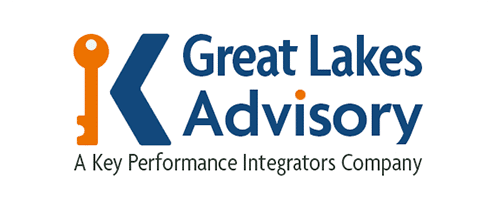In order to profit or even stay afloat in times of serious economic volatility, businesses of all sizes need to be adaptable more than anything else. While you always want to do what you can to grow sales, it’s not always possible. The other option is to reduce operating costs so you boost your profit margin even in times of tight sales. If you’re not familiar with the many ways to reduce operating expenses, then using business optimization services can help your company out with trimming costs to get more streamlined costs in your operations.
What Is Operating Cost?
What is operating cost? In short, it’s the total sum of everything you have to pay to keep your business running. Business operations are not cheap. Operational cost reduction is necessary to reduce operating expenses to the point that they’re only a fraction of your revenue coming in. If you want to reduce operating cost factors in your business, then you need to look at operating expenses and your cost of goods sold, or COGS.
Operating costs are determined by a formula:
Operating costs = COGS + Operating expenses
What Are Operating Expenses?
Operating expenses might also be known as OPEX. They’re the administrative and maintenance costs involved with the daily operations of running your business with no direct relation to your company’s particular product or service, and yet they’re crucial expenses for your operations. Specific examples include:
- Accounting fees
- Attorney fees
- Facilities repairs and maintenance
- Insurance
- License fees
- Marketing
- Office Supplies
- Real estate property taxes
- Research
- Staff payroll
- Travel expenses
- Utilities
- Vehicle expenses
What Is the Cost of Goods Sold?
COGS include anything you need to pay for so your company can produce a product or service. That might include elements such as:
- Equipment
- Storage
- Packaging
- Labor
- Manufacturing
- Materials
What Are Operating Cost Ratios?
When looking into operating costs, two data points are probably more important than others. These include:
- Operating income
- Operating expense ratio
Operating Income
Your company’s operating income is how much overall profit your operations generated. The formula is as follows:
Operating Income = Overall Revenues – Your Operating Costs
What an ideal operating income is proves to be highly subjective, especially based on company size. The number alone doesn’t provide a strong indicator of a company’s financial health.
Operating Expense Ratio
This is a far more useful statistic in regards to the financial health of a company since you can compare it to others in your sector. Lower ratios are better, and you can calculate them using this formula:
Operating Expense Ratio = Operating Costs / Overall Revenues
While knowing all of this, in theory, is useful, it’s the actual implementation of ideas that makes things better for your business. If you want professional assistance in doing this, then consult the right industry experts about that.
12 Ways to Reduce Operating Costs and Expenses
Depending on your industry, there might be different OPEX reduction strategies you can employ. Not all of the following ideas might apply to your industry or organizational structure, but chances are good that you can try more than one of the following 10:
#1. Business Process Optimization
Before you start trying to overhaul components of your business or even the entire company, you need to know exactly where you stand right now. Just trying to optimize your current business processes can yield significant dividends.
Business process optimization should start with two rounds of mapping. First, you need to map out all the different business processes in your company. Second, you should map out the individual steps in each process.
Documentation is the next step for any process you want to optimize. Anything that is measured is something managed.
When you see possibilities to optimize any specific business process, try them. The ones that prove effective and worth it should become standard operating procedures.
As you’ll soon see, the other nine items on this list are arguably all specific methods of business process optimization. That’s why this idea takes the top spot on the list.
#2. Track Your Spending
Along the lines of anything measured is something managed, you should track all spending in your business. Even if you’re already doing it, see how you can take it to a new level. If spending is still tracked on paper, move to a digital option. If you use a spreadsheet, then move up to accounting software. Review all your expenses to find spending that you might reduce or even stop.
#3. Emphasize Profitable Services and Products
While tracking all your numbers, look at the specific profit margins of every product and service you sell. Ascertain which ones have the highest profit margins so you can start emphasizing most of your efforts on those. Start cutting back or even eliminating those products and services that don’t have as high a profit margin. This step alone can increase the profit margin of your entire business even before you optimize other processes throughout your company’s structure.
#4. Institute Telecommuting
Letting employees do remote work instead of coming into your office minimizes business spending in multiple ways. You’ll almost immediately save money on utilities and water service. Also, if you don’t need as many desks or workstations, you can reduce your overall property costs because you won’t need as much room. The ability to remote work is something many professionals look for as a benefit. Offering it can increase employee retention and spare you the costs of hiring and training replacement personnel.
#5. Rent Out Your Free Desks
If allowing for remote work frees up desks but you don’t want to downsize or can’t due to contractual obligations, then consider renting out your free desks to freelancers or remote workers from other businesses. Even at $150 per desk, they get a great deal and you shave a lot off of your office and facility costs.
If operational cost reduction is important to your business, but you’re struggling in coming up with specific ways to reduce operating expenses, then it might be a good idea to reach out to professionals at Great Lakes Advisory who know how to manage operating expenses.
#6. Change Your Workweek
The five-day workweek might seem like a national tradition, but it’s also not set in stone. Some companies and departments can reduce to a four-day workweek and still get all their tasks done each week. Doing so means saving up to 20% on payroll, water, and electricity immediately. Three days off per week is also something that many employees love having as part of their work-life balance, so it can boost morale and employee retention.
#7. Outsource When Need Be
Small businesses can have their staff spread out pretty thin covering a lot of ground. Larger enterprises might be involved in quite a few different things but only be effective at certain core activities. Contracting out specifically delegated work to third-party professionals and vendors can spare you payroll. You’ll also likely get better results if industry-specific talent handles those tasks instead of internal employees who aren’t as proficient. The ability to scale spending to reflect current needs always helps keep a company more adaptable.
#8. Cut Your Utility Bill in Half
Many companies wind up paying big electric bills. Switch off lights when they’re not being used. Switch off anything electronic when the office space is closed. Install energy-saving bulbs. Only buy energy-efficient equipment when doing replacements or restocking. Use natural light whenever it’s daytime. If possible, get your electricity from a different utility provider. Being environmentally friendly as a business matters a lot to consumers and employees alike, so enjoy some brand loyalty.
#9. Everything Is Negotiable
Don’t overpay for goods and services. Even if you have been doing that already for years, stop it. Make a habit of getting multiple project bids from different vendors. Try to haggle lower prices in exchange for exclusivity or loyalty. If you’re a small business, see if you can pull together with other entrepreneurs for collective buying power or bulk savings. People saving money at the household level might know tricks your whole company can use.
#10. Find Better Credit Cards
Businesses often give managers and supervisors credit cards they can use to buy things for their company. This revolving debt is crucial to keep operations going, but anytime you can upgrade a credit card, it’s a move you should make. Lower interest rates, longer grace periods, and any rewards or cashback are all things that will streamline your expenses and increase your potential profit margin. Even a change of a single percentage point adds up over time.
#11. Minimize Travel Expenses
Some business travel might be unavoidable, but these expenses also eat up a lot of money. If you have any professionals who need to fly, try to route them through smaller regional airports instead of larger ones. Creating itineraries weeks in advance means you have more time to get cheaper tickets. Reduce how many people travel. Eliminate it whenever you can instead of digital meetings and other forms of communication you might use instead.
#12. Use Digital Marketing
Digital marketing is more cost-efficient than anything you do on broadcast media or in print. Pay-per-click and search engine optimization both deliver effective results at any scale you invest in them. Between the two, SEO is even better than PPC. Organic website traffic is practically free and keeps coming. You just need a commitment to ongoing SEO campaign work and a website waiting to convert your inbound visitors into actionable leads or actual business online.
Streamline Your Way to Success
Generating more sales isn’t always easy, and it’s not even always possible. However, there are always potential operational cost savings you can look into to increase your organization’s profitability. Knowing how to reduce operating expenses helps you boost your company’s profit margin. If you want industry experts like Great Lakes Advisory to help your business become more adaptable, then consult experts at your earliest convenience. The more flexible and nimble your company becomes, the better it can adapt to rapid change in a turbulent economy.



